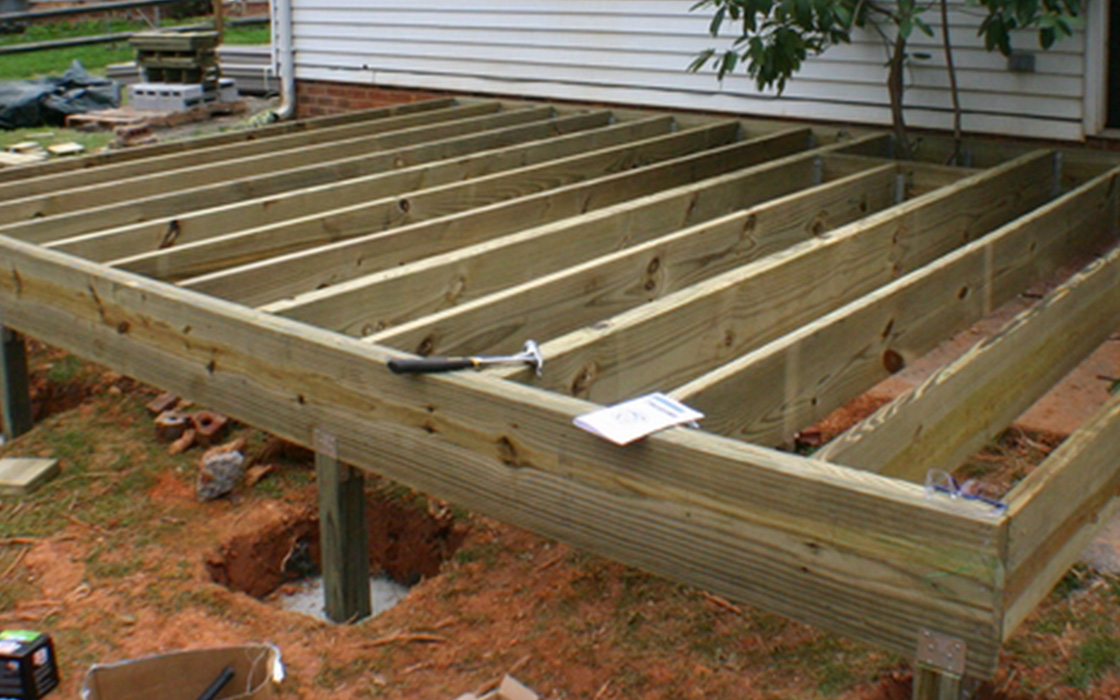Get a consultation today from a local expert specializing in deck installation Austin TX.
How to Choose the Right Products for Your Deck Installation Task
Picking the appropriate products for your deck setup project can appear complicated. There are countless aspects to take into consideration, from toughness and upkeep to looks and environmental effect. The selection between traditional wood and composite materials, each with its very own collection of benefits and downsides, can be especially difficult. The key is to stabilize your budget, style preferences, and lifestyle requires to develop a deck that will enhance your exterior room for years ahead.
Understanding the Various Sorts Of Deck Materials
When getting started on a deck installation project, the option of products comes to be a pivotal choice. Compound products, on the various other hand, are a blend of wood and plastic, offering durability and resistance to weather elements. By understanding these differences, house owners can make an extra enlightened choice on the most suitable deck material for their particular requirements.
Reviewing the Durability and Maintenance Needs of Deck Products
Assessing the toughness and upkeep demands of deck materials is a critical action in deck installation. Toughness entails the product's ability to withstand rough climate conditions, wear and tear, and its durability.
Understanding upkeep requirements is just as essential. Some materials require normal sealing or discoloring to maintain their appearance and stand up to dampness damage, while others, like composite outdoor decking, require much less maintenance. By examining these aspects, one can pick one of the most ideal outdoor decking material, making certain a balance in between durability, maintenance demands, and visual charm.
Expense Evaluation: Contrasting Wood and Compound Decking
Although expense may at first appear like an additional worry, it is a considerable variable when contrasting timber and composite decking. Wood, normally a much less expensive option, has a reduced ahead of time price. Over time, maintenance costs can accumulate, potentially making timber much more costly in the lengthy run. These upkeep costs may consist of discoloration, securing, or replacing damaged boards. On the other hand, composite outdoor decking, while costlier initially, needs much less maintenance, possibly reducing long-term expenses. Yet, it's essential to remember that composite decking isn't impervious to use and tear, and replacement expenses can be high. Prospective deck owners should consider their budget and determination to maintain their decks when deciding between wood and composite outdoor decking.
Looks and Style Versatility of Decking Materials
While price is a crucial consideration, the visual charm and design adaptability of outdoor decking materials additionally play a considerable duty in the decision-making process. Various materials supply varying levels of aesthetic appeal. Natural wood outdoor decking offers a traditional, ageless appearance, while composite products offer a vast range of shades and textures to fit varied preferences and designs. Similarly, style adaptability refers to the capability to form and manipulate the outdoor decking product to meet certain design demands. Wood, for example, uses high style adaptability due to its simplicity of reducing and forming. Composite materials, while much less flexible in style, are still versatile sufficient for most deck styles. These variables, as a result, are essential factors in the option of outdoor decking product.
Ecological Effect of Decking Materials
When selecting decking materials, one need to take into consideration not just visual appeals and durability, but additionally the ecological effect. It is essential to evaluate the sustainability of products and explore recycled decking alternatives. Understanding the potential effect on regional ecosystems will certainly make sure a much more environmentally liable choice.
Analyzing Product Sustainability
In the realm of deck building and construction, analyzing material sustainability is a vital action. This includes examining the ecological effect of each prospective product, taking into consideration aspects such as the energy required for its production, its carbon footprint, and its end-of-life disposal or reusing alternatives. For instance, wood is a renewable energy, yet unsustainable logging methods can result in deforestation. Additionally, composite outdoor decking products frequently combine wood and plastic, reducing the demand for brand-new wood but increasing dependence on fossil fuels. Aluminum and other metals might be more long lasting and recyclable, however their removal and processing can be energy-intensive. Thus, the option of outdoor decking materials must balance capability, looks, cost, and sustainability to guarantee a liable and durable installation.
Recycled Outdoor Decking Choices

Composite outdoor decking is specifically popular because of its durability and simplicity of maintenance. It's immune to rot, bugs, and fading, making it a long-lasting alternative. Recycled plastic decking, on the various other hand, is very resistant and requires minimal upkeep. While these materials may bring a greater preliminary cost, their longevity and minimized ecological impact make them a wise investment for the eco-conscious homeowner.

Effect On Local Ecological Communities
While the advantages of utilizing recycled products for decking can not be overemphasized, it's equally crucial to consider the wider ecological implications of these options. The extraction, handling, and transport of products can profoundly affect local communities. Logging for lumber outdoor decking contributes to habitat loss and environment adjustment. Also the production of composite materials can launch harmful emissions. On the other hand, making use of recycled or sustainably sourced products can aid mitigate these impacts. In addition, considering the lifespan of products can lower ecological effect; longer-lasting alternatives call for much less frequent replacement, thus conserving resources. Lastly, proper disposal of old decking is important to lessening land fill waste (deck installer austin). Basically, an eco-conscious deck project needs mindful product choice, sustainable sourcing, and accountable disposal.
Making Your Final Decision: Tips for Choosing the most effective Deck Products
As the short article transitions right into the Continued subtopic of "Making Your Decision: Tips for Choosing the Best Deck Materials", it is crucial to comprehend the variety of important site deck products available. Striking an equilibrium between durability and aesthetic appeal is important in this option process. The adhering to discussion will guide visitors in making an informed option based on these crucial considerations.
Recognizing Various Deck Products
The job of selecting the appropriate materials for your deck installment can appear daunting as a result of the large selection of options available. Nonetheless, understanding the different products can simplify this procedure. Timber is a popular option, using a traditional visual and affordability. Types of wood utilized include pressure-treated lumber, cedar, and redwood. Compound products, made from a mix of timber and check here plastic, are low-maintenance and immune to rot and insects. Vinyl or PVC decks are even extra durable and require less upkeep than composite products, yet they can look less natural. Aluminum decks are strong, lightweight, and resistant to rot, but they are also the most expensive option. Each material has its own benefits and drawbacks, making it vital to consider your details demands prior to making a last decision.
Toughness vs. Visual Appeals Equilibrium
Balancing toughness with looks can be a challenge when selecting deck materials - deck installation. High-traffic areas may necessitate long lasting products like composite outdoor decking, which stands up to wear and tear however may do not have the natural beauty of timber. Home owners need to strike a balance, thinking about both the deck's sensible needs and their aesthetic choices.
Conclusion
In final thought, picking the best materials for your deck installation project requires mindful factor to consider of aspects such as toughness, upkeep, expense, aesthetics, and ecological influence. Whether you select conventional wood or composite products, your option ought to line up with your budget plan, design choices, and way of life. Ultimately, the most effective outdoor decking material is one that boosts your outdoor room and supplies enjoyment for years ahead.